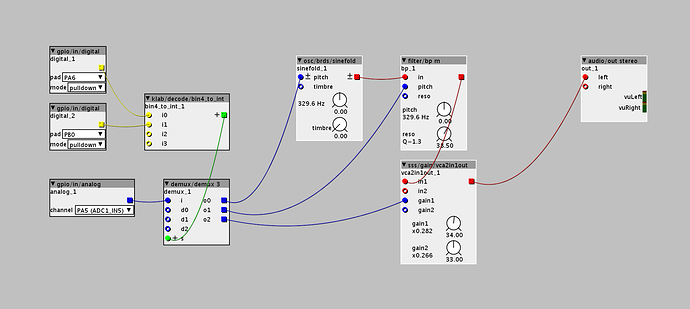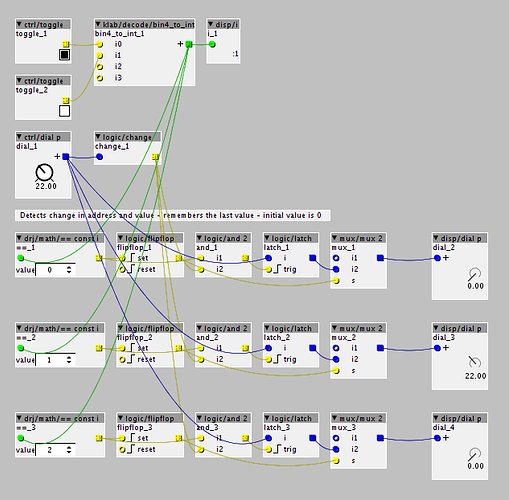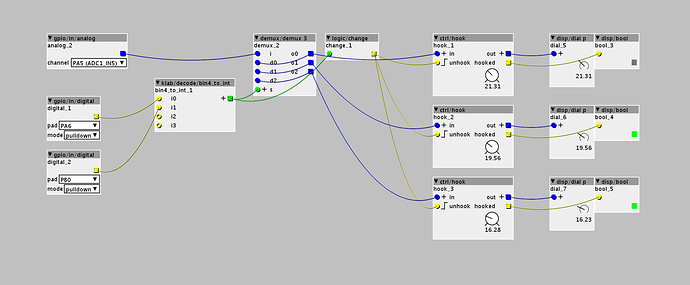I have a potentiometer that controls the volume of a sound. I've made a switch that makes me able to choose if the potentiometer should control the volume, filter or pitch of the sound. So far all this is working fine.
Trouble is that when I use the potentiometer, all parameters change. I would like to keep the parameters that are not selected by the switch in their default position until I select them. Otherwise the pitch and filter is in some weird place when I flick the switch. Make sense?





